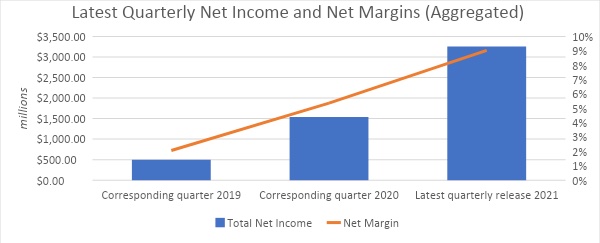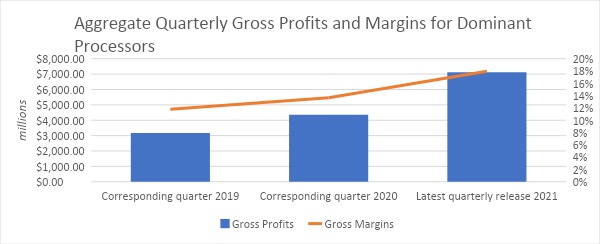Human beings are the only species in the world that is not happy being themselves.
Fr. John Nepil (What Say You Nature/Grace, 25:30).
That's certainly the case for modern Western man, to be sure.
Today is Earth Day for 2022.
Take a closer look at that pile of ashes. All those silver things are nails.
Given the recently and ongoing news, my prediction is that this will be a gloomy Earth Day. War rages in Eastern Europe, with Vlad Putin working on going down as one of history's worst people. In the future, Vlad the Impaler will have to take second fiddle to Vlad the Would Be Czar for Bad Vlads, reputation wise. Now, war is a pretty obvious glum thing to start with in this thread, and I don't want to get into the sappy type poster crap, but war is a pretty big environmental insult in certain ways.* We're not going all maudlin and frankly goofy superficial with a Mothers Against War type of theme here, and we're sure not going to put up a "War is not healthy for children and other living things" poster, the same being one of the stupidest sentiments ever put up on a serious topic, emphasized by constructed juvenility on a topic that's not very juvenile.
But that's part of the problem here. More on that as we carry on.
Earth Day is something that gets politicized, for obvious reasons, pretty quickly. The irony is however, in its heart of hearts, it's a deeply conservative, and conservationist, thing, and not really much in sync with the liberal ethos. Because of the ultimate problem, however, that being narrow self-interest, we tend never to realize that, and for that reason, we don't make the progress in this area that we really ought to.
What we ought to be thinking of is 1) things are defined by our narrow self interests; and 2) ultimately in order to protect nature, we have to realize our own actual natures, and that isn't defined by us.
And hence the photo above.
This might seem to be on the superficial Earth Day level. I.e., don't pollute. And indeed, that point certain needs to be made. The photo depicts ashes and nails. But more than that, the ashes are dead center on a very heavily travelled county road that's closed for the winter.
More precisely, it's right where the road is closed. And I'm certain that I know what happened here. A group of somebodies traveled down to the end of the road and had a huge bonfire, with the firewood being made up of pallets.
Now, who did that? I don't know. If I had to guess, I'd guess that there are two logical groups of suspects. One are young adults. Young adults do stuff like this all the time. A group may have gone out for the night, camped, probably, built an enormous bonfire on a space where it was safe to do it, and stood around and drank beer. A probable guess.
The second guess would be similar. This area is heavily frequented by snowmobilers. So much so that when I saw something at the end of the road, I immediately associated it with them. Maybe a group of them decided to have a late winter gathering, along the same lines.
My guess is that it's more likely group number one. Snowmobilers are already carting in a lot of stuff just to do that, and probably don't want to cart in pallets. Besides that, they're already pretty sensitive, in this area, to being dissed by people who just don't like snowmobiles. Chances are pretty good, therefore, it was group number one.
Now, there's no reason to believe that they intended to hurt a soul. Rather, the evidence is actually the opposite. The road is wide here, and by building a fire there, they built it on a surface that wouldn't burn. Moreover, it was shielded on the windward side by a high wall of snow. All in all, that was pretty good thinking, fire risk wise.
Not lingering nail wise.
Probably just an overthought.
And hence the problem.
Our actions have consequences, even if we intend to them to be harmless. Some thinking and consideration is in order.
Here, now, there are hundreds, maybe thousands, of nails on one of the most heavily travelled rural roads in the county.
On the way out, I saw two highway patrolmen and reported the situation. They said they would head up as "we have shovels". Well, no matter how diligent their efforts, they won't be able to shovel up all those nails. People will be getting flat tires all summer long. Mountain bikes go by this area all the time, they'll get flats too. Hikers go by, and hikers with dogs go by. And it's still in an area where mounted horsemen occasionally go by. Nails pose a threat to them all.
Indeed, dating back to Roman times a device made of nails, the caltrop, was used to disable horses. They're still made today to disable car tires.
They didn't stop to think of that. Or, if they did, they brushed it off.
And we all do both of those.
And here's the first thing to consider. Just because it's in our own interest, whether for enjoyment, or for wages, doesn't mean it's good, long term, for everybody and everything.
That doesn't always mean we can avoid it. Indeed, in someways, our daily actions are inevitably a secular example of what Catholic theology defines as "cooperation with evil". Save for those who live cloistered lives, that will be hard to avoid.
Which gets to the topic of acting individually and collectively.
Now, individually, that's basically a don't build bonfires in the road sort of thing to some degree. But in others, it's a be honest sort of thing.
And that means being honest with yourself, including where you are in cooperation with things. Beyond that, however, it's being honest that just because it profits you in some fashion, doesn't mean it's great for everyone in all senses.
To give an example of sorts, just because Colorado can tax weed doesn't mean getting a bunch of people stoned out of their heads and destroying their lives is really a good thing.
There are lots of other examples, to be sure.
But beyond individual, there's collective, and that has to do with community, and at the end of the day, that ultimately had to do with nature in a real, and existential, way.
We may all be individuals, and indeed we are, with each being unique, but beyond that we are all individuals within a single species, and therefore much more alike than different. Our individualism takes us only so far. It's easy to get diverted into "community" at this point, but the fact of the matter that our members of a species in fact defines our nature, and much of our modern, or as some would have it, "post-modern" individualism is a perversion of that.
It was in David Lean's Lawrence of Arabia that the central character grabbed his own flesh and stated that a man could "be what he wants, but not want what he wants". This is true of the entire species. As a species, we're little removed from nature, and when we act, on Earth Day, or any ohter day, as if we are not, even if we are the most rabid of environmentalist, we act in a fashion that's an insult to nature and does it harm. We must be of nature, in nature, part of nature, and consistent with our natures, to act on any fashion that's really beneficial to nature, including our own natures.
And that's a deeply conservative thing, as well as a conservationist thing.
And it's something that modern Western society doesn't want to be about.
Footnotes:
*". . .sappy type poster crap". This and the following line referred to the famous poster depicting a highly juvenile drawing of flowers and the lines that "War is not healthy for children and other living things".
Well, d'uh.
Related threads:









